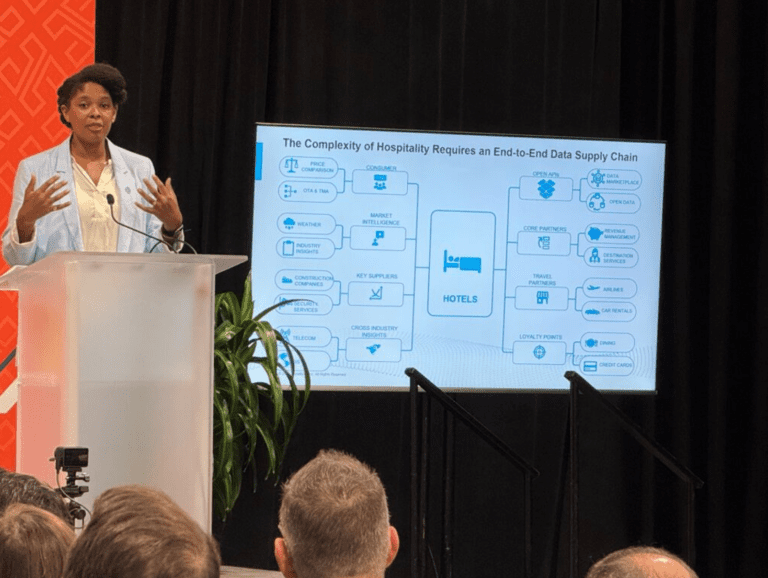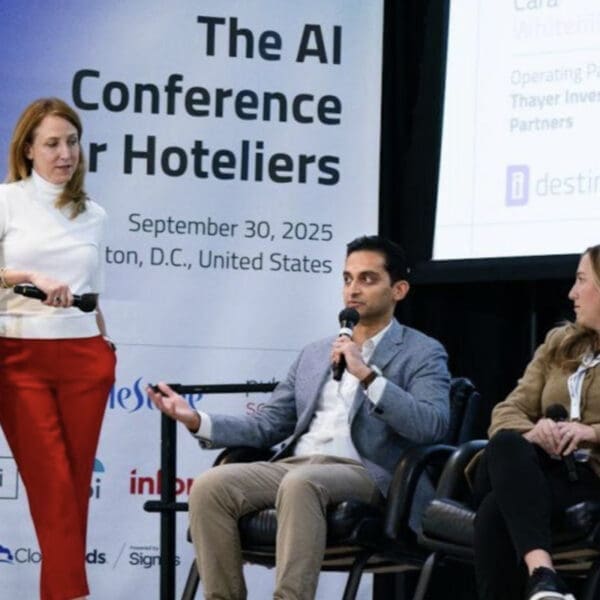 The state of hospitality marketing has undergone profound changes in recent years, with the pandemic serving as a catalyst for emerging travel trends that have reshaped our industry. Understanding how we got here and adapting to these trends is not just beneficial for growth—it’s essential for survival.
The state of hospitality marketing has undergone profound changes in recent years, with the pandemic serving as a catalyst for emerging travel trends that have reshaped our industry. Understanding how we got here and adapting to these trends is not just beneficial for growth—it’s essential for survival.
Experiential travel takes center stage
Today’s travelers are looking beyond the traditional offerings of chain hotels in metropolitan hubs. Four walls, a bed, a mini fridge and a bathroom just aren’t cutting it anymore. They crave experiences that are:
- Unique
- Engaging
- Memorable
From boutique accommodations in remote locales to hotels offering curated local experiences, the shift towards experiential travel is here to stay.
Some of our travel brand customers are responding by realigning their marketing strategies to cater to this new traveler ethos, emphasizing authentic experiences over mere accommodations. A lot of hotels also offer experiences within their walls that they promote and can take advantage of such as restaurants on site, event venues for weddings and special occasions, spas, etc.
They’re highlighting services that enrich the visitor experience on their site and social channels, such as:
- Cultural tours
- Local art displays
- Partnerships with local businesses (retail, food & beverage)
Evolving traveler behaviors
Reflect on the journey from the peak of the pandemic in 2020 to the present day. During the pandemic’s height, health and safety protocols—such as improved indoor air quality, social distancing, rapid testing, temperature checks, and masking policies—were not only vital marketing points, but also quickly became industry standards.
There was also a noticeable shift toward more flexible booking policies, enabling guests to alter or cancel reservations without incurring fees. Isolation and space became a top priority for many travelers, leading to a surge in demand for secluded destinations.
As restrictions relaxed and travel began to increase, a new wave of cost-awareness took hold. Now, there’s a growing trend of travelers willing to spend more on unique experiences. This fluctuation in traveler preferences underscores the need for a dynamic marketing strategy.
Hotel marketing teams must be agile, ready to adapt and innovate quickly. They also need to understand and match the digital proficiency of today’s travelers, who often rely on social media and review platforms to inform their travel choices.
Personalization and loyalty
Modern travelers are seeking experiences that go beyond the traditional selection of destinations; they are looking for travel options that resonate with their personal values and aspirations. This shift in consumer behavior emphasizes the importance of personal connection and brand alignment in their travel choices.
Successful hotels are strengthening relationships with travelers through:
Loyalty rewards programs: These programs reward travelers for their continued patronage, offering benefits and incentives that enhance their travel experiences. By carefully tailoring these rewards to the preferences and behaviors of the customers, brands can significantly increase customer loyalty.
Personalized communications: Utilizing data-driven insights, companies can send personalized content that resonates with individual travelers. Whether it’s a curated list of upcoming events at their destination, personalized travel tips, or exclusive offers, these emails make travelers feel valued and understood.
Tailored travel packages: Customized travel packages allow travelers to experience a destination in a way that aligns with their personal preferences and interests. By offering customizable options, travel companies can cater to the unique needs of each traveler, making their experience more enjoyable and memorable.
This commitment to personalization and genuine engagement is key to navigating the evolving preferences of today’s travelers and securing their loyalty for the future.
Sustainable and health-oriented travel
Sustainability and health have become paramount in travelers’ decision-making processes. Eco-friendly practices and health-oriented accommodations are no longer just nice-to-haves. They are must-have features that influence booking decisions.
Hotels need to integrate these aspects into their core offerings to meet their guests’ evolving demands. This includes offering:
- Sustainable dining options
- Eco-friendly cleaning products
- Amenities that support a healthy lifestyle
The different roles of content
It is more critical than ever to swiftly adapt marketing strategies to current trends. Content marketers must stay vigilant, leveraging real-time data to pivot and tailor their approaches effectively. Engaging content that resonates with the current sentiment, whether it’s a sense of adventure or safety, can make all the difference in attracting bookings.
The speed at which content can be created and distributed is paramount. Real-time workflows allow brands to do three important things. First, they can capitalize on emerging trends. Second, they engage with audiences at peak moments of interest. And lastly, they set content to be pushed to social media channels faster.
This agility improves visibility and engagement, and also allows marketers to test different approaches quickly, identifying what resonates best with their audience. Analyzing the performance of this timely content helps determine what can become evergreen. The strategic use of real-time and evergreen content creates an ecosystem that keeps the brand relevant and top-of-mind for prospective travelers.
Allowing data and AI to predict traveler trends
The use of AI and data analytics in tracking and identifying trends is proving invaluable. These tools improve decision-making, while also allowing us to anticipate and respond to travelers’ needs before they become evident trends. AI can help craft marketing strategies that are both effective and efficient.
By leveraging data and AI, teams can quickly predict booking patterns, understand guest preferences for room types, and improve the quality of campaign content to attract more visitors.
As we look to the future, the key for hotel marketing leaders and their teams lies in agility and the ability to anticipate and meet travelers’ changing desires. By embracing these trends and adapting their strategies accordingly, we can ensure that the hotel industry not only recovers but thrives.




















